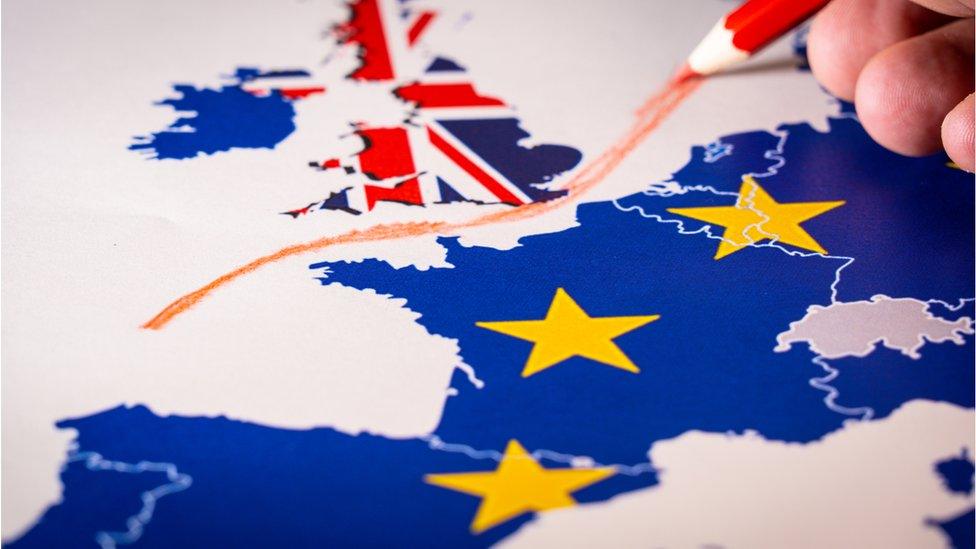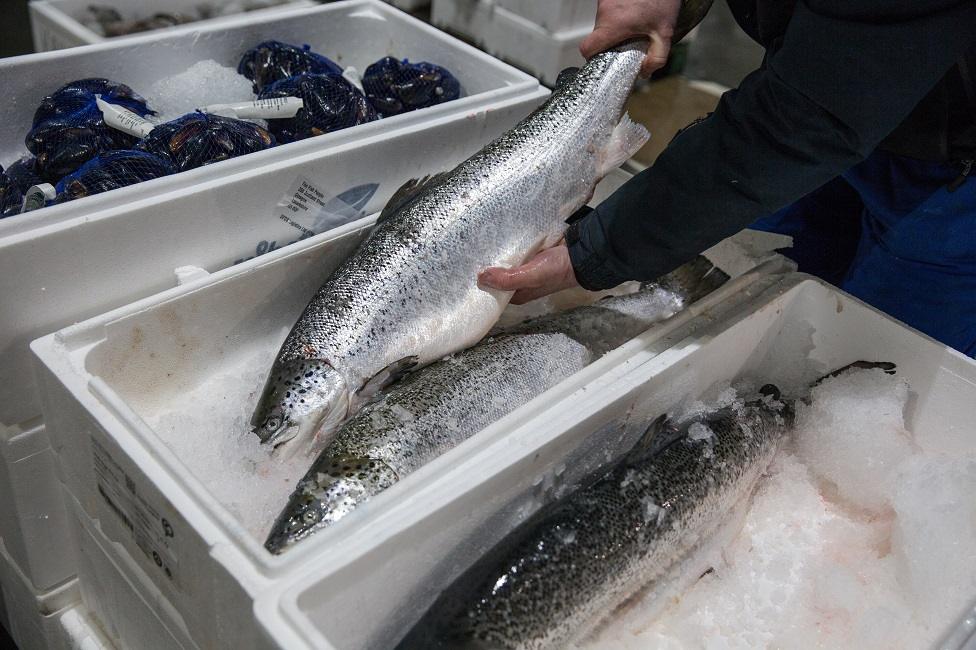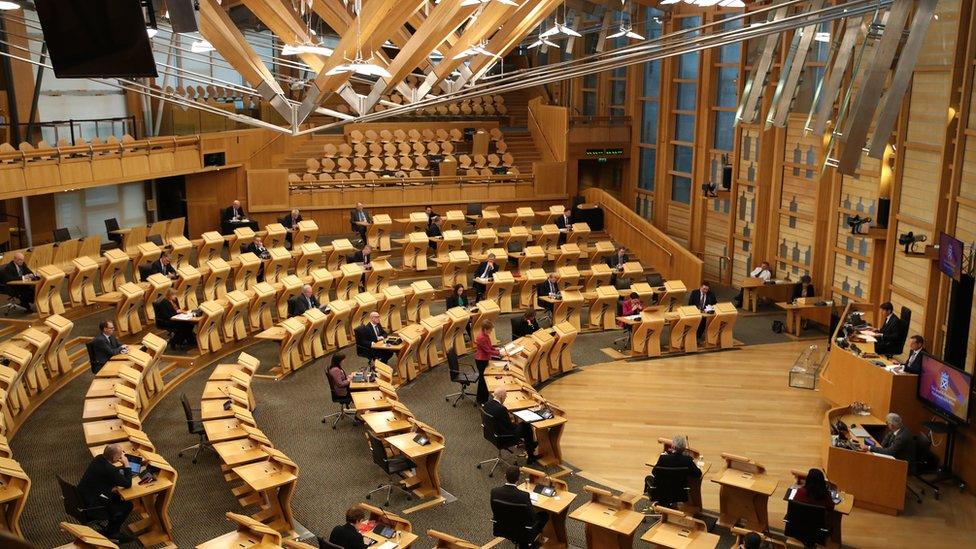Brexit: A Hogmanay like no other as the UK cuts ties with EU
- Published

This is a Hogmanay like no other.
Not only has coronavirus caused the cancellation of street parties and first footing but the TV comedy Only An Excuse is airing for the last time.
Midway through this last episode, when much of Scotland is sharing in laughter, the more sober business of Brexit takes a decisive turn.
The UK leaves the European single market and customs union an hour before midnight. That's when the Brexit transition period expires and our new relationship with the EU begins.
The ink will barely be dry on the legislation to put in place the trading and security partnership agreed by both sides on Christmas Eve.
The EU (Future Relationship) Bill was approved at Westminster on Wednesday after minimal scrutiny.
The approval of a second Covid vaccine and the extension of restrictions to curb the virus in England also pushed the story down the news agenda.
The legislation's passage through a specially recalled Parliament was assured because Boris Johnson's Conservative party has a large majority in the Commons.
The most anti-Brexit Tories left parliament at the election and the party's most leave minded MPs in the European Research Group gave the deal the thumbs up.

Scottish Conservatives backed the legislation despite the fishing industry concluding that the deal falls far short of the promises made to them.
In 2018, all Scottish Tory MPs including the then Scottish Secretary David Mundell, his successor Alister Jack and Douglas Ross, who has since become Scottish party leader, signed a letter to Theresa May, then the prime minister, setting out their red lines on fishing. , external
They made clear they "could not support" an agreement that prevented the UK from independently negotiating fishing access and quota shares on an annual basis.
The actual agreement guarantees EU boats continued access to UK waters and significant quota share until at least 2026.
Thereafter, any reduction in EU fishing rights by the UK would allow the EU to impose tariffs on UK fish exports.
That appears to create a direct link between access to fishing grounds and access to market, which Scottish Tories also said they opposed.
The UK government did not need opposition support to pass their Brexit bill but they got it anyway from much of the Labour Party, including the shadow Scottish Secretary Ian Murray.
The party leader Sir Keir Starmer argued that what he called a "thin deal" was better than a no deal Brexit.
In the last Parliament, Sir Keir devised six tests for any deal to merit Labour backing, including that it should replicate the benefits of single market and customs union membership.
In the end, these tests were not applied.
Labour is keen to move beyond the Brexit debate not least in the hope of winning back some of the leave voters it has lost.
'The battle for the union'
The party's emphasis is different in remain-voting Scotland, where Labour MSPs voted with the SNP, Liberal Democrats and Greens to refuse Holyrood's consent for the legislation in what amounts to a symbolic protest.
The SNP has resisted Brexit throughout the process although the Scottish government said it would accept leaving the EU if either Scotland or the UK as a whole remained in the single market and customs union. , external
More recently, the party has focussed its energies on opposing a no-deal Brexit with the First Minister Nicola Sturgeon arguing that "any deal" would be better than that outcome.

Holyrood voted to refuse consent for the Brexit legislation
However, when it came to voting to implement the only deal on offer, the SNP were against.
The Tories said that was "hypocritical" and tried to rebrand the first minister as #nodealnicola on social media.
In the end, the Brexit bill was approved by MPs with an overwhelming majority of 521 votes to 73.
For the SNP, being anti-Brexit has proved popular even though it is estimated around a third of the party's supporters backed leave in the 2016 referendum.
Since then Brexit has driven an increase in support for independence which now appears to enjoy majority backing in Scotland, according to the trend in opinion polling.
It is the renewed argument over independence that lies ahead in the new year as we move towards Holyrood elections due in May.
As the Brexit-backing Conservative MP Mark Francois put it, from his perspective, in the Commons: "The battle for Brexit is now over. We won, but I suspect the battle for the Union is now about to begin".
Welcome to 2021.